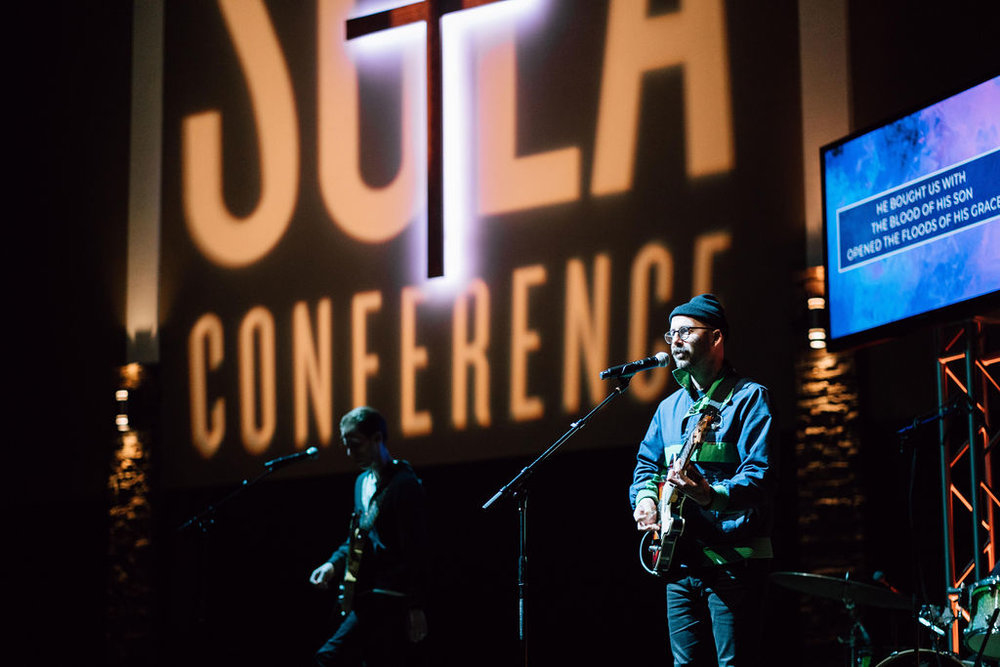Note from SOLA: This video was recorded during The SOLA Conference 2019. Below is a transcript of the video. It has been lightly edited for readability.
When I was a young boy, I was really fascinated with songwriting. Music was just a really big part of my life. So I would go to church and I would listen to music.
I was always fascinated with an older lady who played the organ, and I was amazed by the way she would move her feet. We had another guy who led the singing, and he was like this mythical person to me because he was this older guy who had lived his entire life with a birthmark that covered his entire face.
As time went on, what I came to realize was that I’d see all these different people in the church who were serving, and it wasn’t their job. There’s something really special about that that has been lost over the years. Because it isn’t until the past 20 or 30 years that we’ve started to turn church into a little bit more of a production at times. It can sort of create this mindset that there’s some sort of performance element to the church and to the way that someone might serve.
Because there was an opportunity there with the prospect of a stage, as young kids, we started doing a worship team.I thought, “Man, this is awesome. This is my opportunity to start being the center of attention.”
I could probably make it sound better than what it actually was, but that’s really what it was. Deep down in my heart, there was this battle and desire to want to be something that I wasn’t meant to be, and that was I wasn’t meant to be the spectacle or the focus of what we were doing.
So the first aspect of [worship leading] would be to focus on the gifting and the opportunity to serve the church that God is inviting you to lead.
The second thing is understanding that what you’re doing is singing sermons. So as you are leading people in these songs, [you need] to understand that there’s incredible importance there. People will go home and they’ll sing these songs throughout the week.
The third thing would be to not see the church as an opportunity to bring together just the people that are like you, think like you, and want the same thing as you. The beauty of the church is that we have multiple generations meeting. You have people that have so many different stylistic preferences. You have people who will love your music and you have people who will not like it as much.
The way that you create issues is by 1. Not hearing those people out and 2. By just trying to forge ahead and just say, “Well, that’s their way of thinking. That’s old way; this is the new way. They need to get on board,” or come up with some excuse.
There’s a real beauty to having songs like hymns, but also to writing new songs and playing new songs and finding a way to bring all that together. Because the whole purpose of a Sunday gathering is to remind people of the communion that we have with Jesus, and because of the communion we have with Jesus, the communion we have with one another.
We are meant to be ministers of reconciliation — not condemnation, not creating separation — bringing people together. Music does that. I’ve seen that in our band. We played with so many different denominations, and it’s so interesting because if we were talking about some of these things, they might say, “I don’t know if I agree with that.” But because it’s delivered in a song and there’s friendship and there’s a relationship, we actually get to have meaningful conversations and move forward and find way more things that we have in common than that we’re different in.

